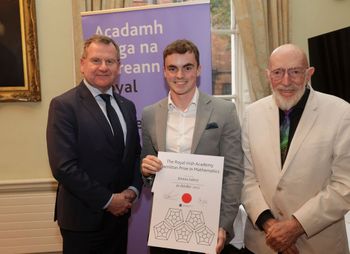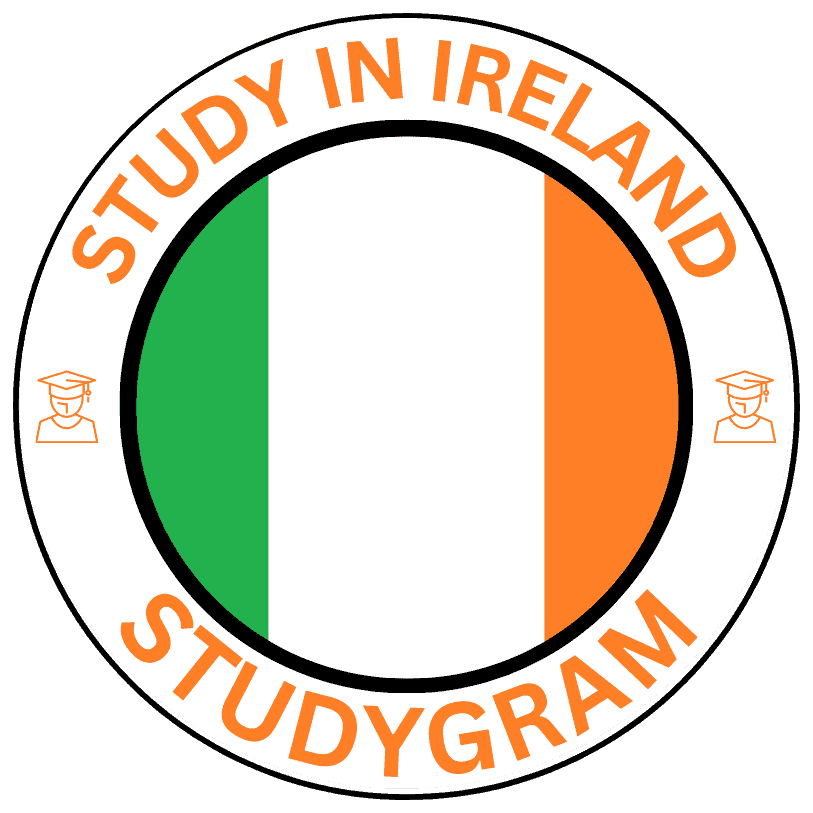
Understanding the Impact of the Hamilton Prize
The Hamilton Prize, named after the celebrated Trinity College Dublin mathematician William Rowan Hamilton, is one of the university’s most prestigious honors for undergraduate mathematics students. Awarded annually on the anniversary of Hamilton’s discovery of quaternion algebra, it recognizes a final‑year student who has demonstrated exceptional academic achievement and a strong potential for future contribution to mathematical research or industry.
What Sets the Hamilton Prize Apart?
- Historical Significance: The prize is tied to the 1843 moment when Hamilton scribbled the first quaternion equation on a bridge wall, symbolizing the university’s long tradition in mathematical discovery.
- National Recognition: Winners receive not only a physical award but also public acknowledgment in university press releases, social media, and national media outlets such as the Royal Irish Academy.
- Career Catalyst: Past recipients have leveraged the award to secure positions in academia, finance, software, and data science, gaining a competitive edge in job applications.
- Community and Networking: The ceremony often features keynote speeches from high‑level policymakers, government officials, and distinguished scientists, providing winners with unique networking opportunities.
Case Study: Ronan Zaletel’s Journey
In 2025, Ronan Zaletel, an undergraduate from Trinity College Dublin’s School of Mathematics, earned the Hamilton Prize. Ronan’s academic record reflects a broad competence across algebra, calculus, and geometry, but his capstone project on algebraic geometry has been highlighted as a major factor in the selection committee’s decision.
Academic Foundations
Ronan’s journey began with a rigorous grounding in undergraduate mathematics, where he consistently achieved top marks in core courses. By his final year, he had already published a short paper on the application of algebraic geometry to cryptographic algorithms, demonstrating an ability to connect abstract theory with practical problem‑solving.
Capstone Project and Research Focus
His thesis, titled “Applications of Toric Varieties in Secure Communication,” explored how geometric structures could enhance encryption protocols. The project showcased both technical mastery and a creative approach to addressing real‑world challenges, qualities the Hamilton Prize committee praised.
Future Plans
Ronan intends to pursue an MSc abroad, followed by a Ph.D. His goal is to contribute to the growing field of applied mathematics within the financial sector, where advanced mathematical models drive risk assessment and algorithmic trading.
Implications for Aspiring Mathematicians
For students considering a career in mathematics, the Hamilton Prize serves as a benchmark for academic excellence. While the award itself is a significant accolade, the surrounding ecosystem—speeches, networking sessions, and media coverage—creates a platform that can accelerate professional development.
Building a Competitive Portfolio
- Academic Rigor: Focus on achieving high grades in advanced mathematics courses. Explore interdisciplinary electives that apply math to engineering, economics, or biology.
- Research Experience: Seek opportunities to collaborate with faculty on research projects. Even small contributions—such as data analysis or literature reviews—can lead to co‑authored publications.
- Leadership and Collaboration: Join mathematics societies, participate in conference presentations, and take on leadership roles in student clubs to develop teamwork and communication skills.
- Showcasing Innovation: Write a concise, well‑structured report or a short paper on a novel application of mathematical theory.
Engaging with the Academic Community
Participation in seminars, workshops, and guest‑lecture series can broaden your perspective and expose you to the latest developments. Attending the Hamilton Prize ceremony, even as a spectator, provides insight into the achievements recognized by the institution and offers networking possibilities with alumni and industry partners.
How the Government and Industry Recognize Mathematical Talent
The 2025 ceremony also highlighted the role of mathematics in national growth. Minister for Further and Higher Education, Research, Innovation and Science, James Lawless, emphasized that mathematics forms the backbone of key sectors such as artificial intelligence, renewable energy, medtech, and data analytics. His remarks underscored the importance of aligning academic pursuits with industry needs.
Sector Partnerships
Trinity’s relationship with industry partners—such as firms in fintech and data science—provides students with internship and research opportunities. For example, an internship with an AI startup could involve developing predictive models using advanced linear algebra techniques.
Exporting Mathematical Expertise
With Ireland’s global position as a technology hub, graduates who can translate mathematical theory into marketable solutions are highly sought after. The Hamilton Prize, by spotlighting such talent, signals to employers that the recipient possesses both theoretical competence and applied skill.
Key Takeaways for Students and Educators
- Academic excellence, research experience, and innovative projects are essential for recognition at the Hamilton Prize level.
- Networking at award ceremonies can open doors to internships, collaborations, and job offers.
- Aligning mathematical studies with industry trends increases employability in emerging sectors.
- Instructors can encourage students to pursue research with real‑world relevance, thus enhancing their prospects for awards and career advancement.
Action Steps for Prospective Applicants
- Maintain a strong GPA across core and elective subjects.
- Start a research project early, ideally under faculty mentorship.
- Aim to publish at least one paper or preprint by final year.
- Participate in mathematics societies and leadership roles.
- Seek feedback from advisors to refine your research focus.
- Apply to multiple academic and industry exchanges to gain a broader perspective.
By systematically building a robust academic and research profile, students can position themselves not only for the Hamilton Prize but also for a rewarding career in mathematics and its applications.
Explore Further Opportunities at Trinity College Dublin
Trinity College Dublin offers a wealth of resources for mathematics students, including specialized laboratories, funding for research, and collaboration with industry. Whether you pursue a bachelor’s, master’s, or doctoral program, the university’s support ecosystem can help you transition from theoretical study to practical impact.
- Undergraduate Mathematics Courses
- Graduate Programs in Applied Mathematics
- Research Opportunities
- Alumni Network and Career Services
For more information on how to get involved or apply, contact the College’s admissions office through the contact page. The university’s support staff can guide you through the application process and connect you with scholarships and internships aligned with your interests.
Final Thoughts and Next Steps
The Hamilton Prize celebrates the intersection of academic brilliance and practical impact. Ronan Zaletel’s achievement, combined with Trinity College Dublin’s rich history of mathematical innovation, provides a roadmap for aspiring scholars and industry professionals alike. By following the outlined strategies, students can elevate their academic profile, secure mentorship, and ultimately contribute to sectors that rely on mathematical excellence.
Interested in pursuing a career that bridges mathematics and real‑world applications? Start by exploring Trinity College Dublin’s research centers and consider applying for a place in an advanced mathematics program. Your next step could be a scholarship program, an internship with a data‑driven company, or a research collaboration that begins during your final year.
Stay Informed About Upcoming Math Events
Keep up with the latest developments by subscribing to the Trinity College Dublin news & events page. Regular updates will provide information on conference dates, admission deadlines, and scholarship opportunities. Engaging with the community early ensures you remain at the forefront of mathematical research trends.
Questions or Feedback?
If you have any queries about the Hamilton Prize, academic programs, or how to leverage mathematical expertise in a professional context, feel free to write a message to the College’s public affairs office at [email protected] or call +353 1 896 3983. The team is available to answer questions and provide guidance on next steps in your academic journey.

